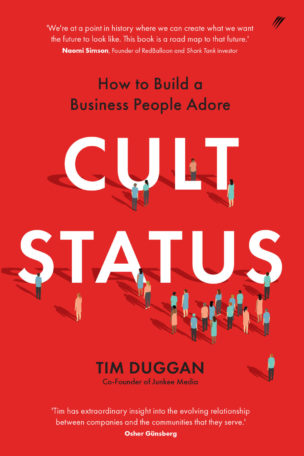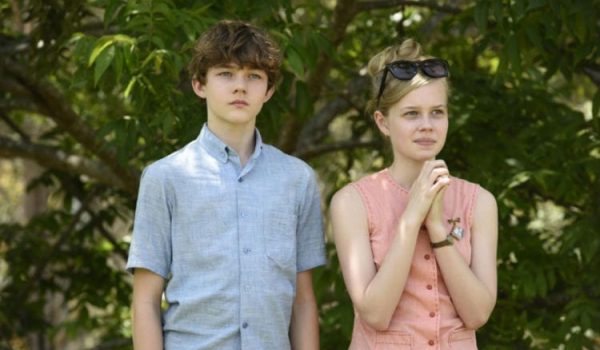This is an extract from Tim Duggan’s new book Cult Status: How to Build a Business People Adore by Tim Duggan, Pantera Press, available now. Here, Tim talks about how inspirational Wiradjuri woman Jarin Baigent supports the Aboriginal art community through her company Jarin Street.
To earn cult status, you need to give others a sense of belonging and invite them into a world that you co-create. Jarin Baigent knows this only too well. As a proud Wiradjuri woman from central west New South Wales, Jarin comes from a long lineage of Aboriginal women who have instilled a strong sense of purpose in her. ‘When you come from a family like what I come from,’ she says, ‘it’s not just about you. Nothing you do is ever just about you. Everything you work for, your elders before you and before them have all had to work so hard to get you to a starting point to be able to do that.’

Jarin is a former police officer who now runs Jarin Street, a small, growing business that produces 100 per cent Aboriginal designed products and garments. She leads her artists, her Aboriginal community and customers by listening to their feedback and crafting her business model around their concerns.
She was on a work secondment to Australia’s Northern Territory, home to popular tourist destinations like Uluru and Kata Tjuta near Alice Springs, where around 30 per cent of the Northern Territory’s population are Aboriginal and Torres Strait Islander. She noticed that a lot of tourists to these majestic sites wanted to take mementos of their trip home with them, usually in the form of Aboriginal art, but it was still a wildly unregulated market.

‘What really struck me was seeing… the disempowerment around art,’ says Jarin. ‘You sell to any of these shops and they’re not run by Aboriginal people. It’s literally like a factory… “Give us your art and we’ll do something with it. We’ll sell it for you and we’ll give you this portion, and we’ll keep this.”’ Jarin spoke to some of her cousins and aunties who were established artists. They told her stories of being ripped off. ‘I just kept hearing the same theme over and over again: disempowerment,’ she says.

Jarin wanted to create something fair and equitable for the artists, that would connect with mainstream Australia. She realised one of the common threads connecting most people was wellbeing. She ran through several product ideas, before settling on yoga mats. They were common enough to have a wide appeal, and also provided a large canvas to display Aboriginal art.
A firm believer in self-determination, every artist featured on her garments is acknowledged and paid royalties every time a product is sold. Jarin thinks of each artist as a business partner with her on the same level. Starting initially with yoga mats, zippered cases and towels, she’s adding activewear clothing to the range as well. Jarin is leading several communities at the same time: she’s showing her Aboriginal community how to balance profit and purpose, empowering artists to value their work and giving her customers the ability to show their support by purchasing quality products.









